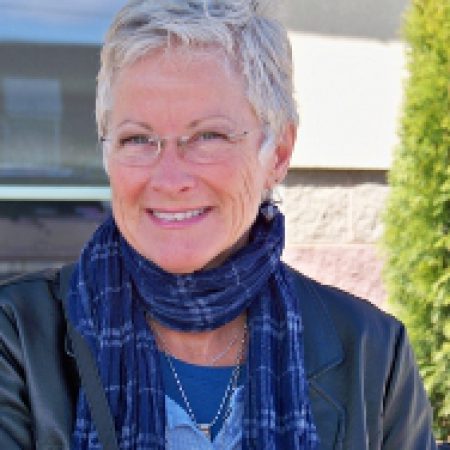
One of the first people I interviewed in the early 2000s for what eventually became my first book, Living in More Than One World: How Peter Drucker’s Wisdom Can Inspire and Transform Your Life, is Celeste Palmer, who has a one-of-a-kind life story. A life-threatening May 2000 car accident in Southern California caused her to suffer Traumatic Brain Injury/TBI, resulting in amnesia. She could not recognize family members, had no knowledge of her previous life leading her own accounting and database management company, and had to relearn knowledge and activities that most of us take for granted.
This meant completely rebuilding her life, which later led her to study and work at the Drucker School of Management, in Claremont, California. She studied under Peter Drucker, and also became close friends with Peter and his wife Doris Drucker. Besides our interview, Celeste was instrumental in connecting me with people and resources at the school in those early days of research. We have remained friends over the years, and I’ve always enjoyed meeting her for breakfast during my visits to Claremont.
In 2009, she founded Bridging the Gap, Connecting Traumatic Brain Injury Survivors. She’s also a busy speaker, coach, writer, and volunteer who contributed her story to the book Chicken Soup for the Soul: Recovering from Traumatic Brain Injuries: 101 Stories of Hope, Healing, and Hard Work.
I asked her to describe more about her work and life, and how her organization continues to help people with Traumatic Brain Injuries.
Do the effects of the extremely serious injuries you sustained almost exactly 22 years ago have effects/repercussions for the way you run your nonprofit Bridging the Gap? Related to that, your website brings into focus the concept of reinventing one’s life after a traumatic brain injury. Do people find it helpful to apply that terminology after such a devastating life change?
How I run my nonprofit is affected by my injuries. Especially I am most knowledgeable about what it is like to live with a TBI, and I can explain to those who haven’t experienced a TBI what is going on. To those with a TBI I can explain what they don’t notice about themselves. For both groups I guide them to resources adapted to TBI because unless you’re living with one you don’t know. And if you’ve seen one brain injury, you’ve seen one brain injury. To give a bit of definition to TBI it can be any brain change from stroke to concussion, PTSD [Post-traumatic stress disorder], Parkinson’s disease, aneurysm, and so many more.
Yes, we do refer to reinventing ourselves or having a new normal after these devastating events have changed our lives forever. Mostly, I’m helping people find balance and confidence, a new purpose or something meaningful again.
Can you briefly describe how your studies and work at the Drucker School, and friendship with Peter and Doris Drucker, changed your life in the years after your injury?
I’m so grateful to a friend who encouraged me to go back to school after my injury. That meant the Drucker School because I admired Peter Drucker’s work prior to my loss of memory. Getting a graduate degree after such an event isn’t easy. I thank all of the staff and professors who encouraged and worked with me to get it done! Peter and Doris invited me into their home. Not only did I drive them on their errands but we had lunch together and my youngest son and I had wonderful conversations with them. Without their encouragement I wouldn’t have taken all the research I was doing for my own recovery and put it on the internet or founded a nonprofit. Peter said no one else is doing it- you will do it! There is a lovely story behind that.
Regarding all of the communicating, creating, and outreach you have done over the years, do you think that the person you were pre-accident would eventually have started doing similar types of activities (but on a different subject), or is that impossible to determine given the nature of your injuries?
It’s impossible to know if the Celeste before the car crash would be doing anything like what I’m doing today. I don’t know her. Only what a few people who knew her have told me would lead me to believe that her caring for others would be demonstrated in some way.
